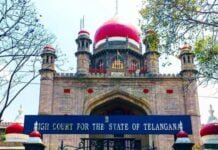The Indian judiciary seems to be on a path of reforming judicial appointment system. According to media reports, the collegium of judges is considering a drastic move to eliminate nepotism. It has mooted the idea of not to recommend lawyers or judicial officers whose close relatives occupy high positions in the judiciary for HC judge appointments in order to give first-generation lawyers more opportunities.
Additionally, they have started interacting with candidates to assess their suitability first hand. According to sources in the Supreme Court, the personal interaction with recommended candidates will help in judging first-hand their demeanour and suitability for appointment as judges.
The idea is to erase the perception of lineage trumping merit or a judicial officer getting priority over first-generation lawyers in getting recommended for appointment as high court judges. To secure this result, one of the collegium judges recently mooted the idea of instructing high court collegiums not to recommend lawyers or judicial officers whose parents or close relatives were/are judges of Supreme Court or high courts, for appointment as high court judges.
The proposal is said to have found favour with some but not without gaining traction for a freewheeling debate among other members of the collegium, which comprises CJI Sanjiv Khanna and Justices B R Gavai, Surya Kant, Hrishikesh Roy and A S Oka.
They feel that some deserving candidates, who are close relatives of sitting or former Supreme Court or high court judges, may lose out, but rationalize it by thinking that it would not harm them as they can earn money and fame as successful lawyers while their exclusion from the selection process would enable many deserving first-generation lawyers to enter constitutional courts. They feel that it would deepen and widen the pool and, in turn, allow representation of diverse communities in Supreme Court and high courts.
Perhaps keeping it in mind, the collegium comprising the CJI and Justices Gavai and Kant have for the first time started interacting with lawyers and judicial officers, recommended by high court collegiums for appointment as high court judges, to test their suitability and assess their capability and calibre.
According to reports, the top three judges interacted with those recommended for appointment as judges of Allahabad, Bombay and Rajasthan high courts and forwarded the names they deemed to be eligible for appointment as high court judges to the Centre on Dec 22.
This interaction marks clear deviation from earlier practice in which the Supreme Court collegium solely went by detailed biodata of lawyers and judicial officers submitted by high court collegiums, intelligence reports on their antecedents, as well as opinions of governors and CMs concerned.



















